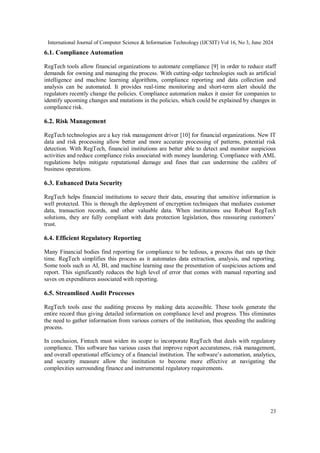Artificial Intelligence (AI) Revolutionizing Risk Management in RegTech: Securing Cryptocurrency Exchanges
The rapid advancement of artificial intelligence (AI) technology is transforming various industries, including RegTech. RegTech stands for Regulatory Technology, a subfield that combines the use of data analytics and AI to support regulatory compliance in financial markets. One of the key applications of AI in RegTech is risk management, particularly within cryptocurrency exchanges. In this article, we'll explore how AI can enhance security for these exchanges while maintaining their integrity.
Regulatory Compliance: A Crucial Role
Cryptocurrency exchanges operate under a multitude of regulations, which can vary significantly depending on the jurisdiction and type of exchange (e.g., Binance vs. Coinbase). These regulations are in place to protect consumers, prevent market volatility, and maintain public trust. AI-powered RegTech solutions can help cryptocurrency exchanges stay compliant with these regulations by:
Predictive Modeling: Using machine learning algorithms to analyze large datasets and forecast potential risks associated with specific market conditions.
Automated Compliance Monitoring: Continuously monitoring regulatory updates and identifying areas where compliance may be at risk, enabling prompt corrective actions to prevent non-compliance.
Risk Assessment: Developing a comprehensive risk assessment framework that takes into account various factors such as market volatility, customer behavior, and security breaches.
Security Enhancements: AI-Driven Threat Intelligence
AI can also play a crucial role in enhancing the overall security of cryptocurrency exchanges. Some ways this can be achieved include:
Threat Detection: Identifying potential threats to the exchange's infrastructure or customer data through machine learning-powered threat intelligence systems.
Real-time Incident Response: Automatically detecting and responding to security incidents in real-time, minimizing downtime and ensuring minimal disruption to operations.
Automated Incident Classification: Assigning severity levels to detected incidents based on their impact, enabling targeted remediation efforts.
Benefits of AI-Driven Security
The use of AI-driven security measures can bring numerous benefits to cryptocurrency exchanges, including:
Improved Compliance
: Enhanced risk management and regulatory compliance through the use of predictive models and automated compliance monitoring.
Increased Efficiency: Automated incident response and threat detection enable faster resolution of security incidents.
Enhanced Customer Experience: Real-time incident response minimizes downtime and ensures minimal disruption to operations, enhancing customer satisfaction.
Challenges and Future Developments
While AI-driven RegTech solutions offer numerous benefits for cryptocurrency exchanges, there are also challenges that must be addressed:
Data Quality and Integration: Ensuring high-quality data and seamless integration with existing systems.
Regulatory Compliance
: Navigating complex regulatory requirements while implementing new technologies.
Scalability and Reliability: Ensuring AI-driven RegTech solutions can scale to meet the demands of rapidly growing exchanges.
Conclusion
The use of AI in RegTech has revolutionized risk management and security within cryptocurrency exchanges. By leveraging predictive modeling, automated compliance monitoring, and threat intelligence, exchanges can enhance their overall security while maintaining regulatory compliance. As the use of AI continues to evolve, it is clear that this technology will play an increasingly important role in supporting the growth and sustainability of cryptocurrency markets.


